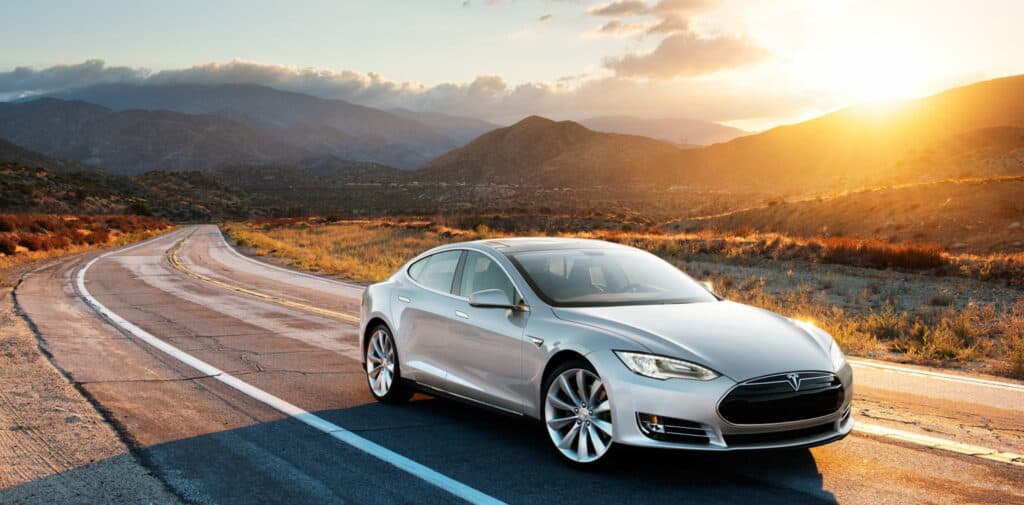The tax implications of company cars
The Government’s climate change advisers are suggesting that 80% of cars should be electric by 2040 on the road to net zero by 2050. Fully electric zero-emission cars continue to attract tax breaks compared to hybrid, petrol and diesel cars. However, the benefits are being eroded meaning that companies considering the provision of company cars, and employees considering taking the offer of an electric car, should consider the cost implications carefully.
Purchasing or leasing?
If a company buys a vehicle, then capital allowances can be claimed on the purchase cost and set against the company’s income when calculating its profits. If the company leases the car, no capital allowances will be available, but tax relief will be available on the monthly lease payments.
While there is no right or wrong answer about whether the car should be purchased or leased, the cash flow impact should be considered before making the decision, especially while interest rates are high.
Capital allowances
For new and unused cars with CO2 emissions of 0g/km, 100% first year allowances are available in the year of purchase.
First year allowances provide immediate tax relief by enabling the company to set the whole cost of the vehicle against its income when calculating its taxable profits. However, if the car is subsequently disposed of, a proportion of the allowances given may be clawed back by way of a ‘balancing charge’ equal to the sales proceeds.
Only brand new cars qualify for first year allowances.
Most other vehicles purchased by companies will qualify for tax relief on a ‘writing down’ basis at either the main rate (18%) or the special rate (6%). The rate of the writing down allowance will depend on the car’s emissions: cars with CO2 emissions below 50g/km attract the higher 18% rate and cars with emissions above 50g/km qualify for the lower rate.
Benefits in kind
The benefit in kind (‘BIK’) charge for cars provide to employees is based on the CO2 emissions of the car: the higher the emissions, the higher the BIK charge for the employee.
For electric vehicles the BIK remains low in comparison to petrol and diesel cars.
From April 2025 the BIK rate applying to zero-emission cars will rise from 2% to 3%. The rate will continue to increase by 1% annually, reaching 5% by 2027/28 and thereafter increase by 2% year-on-year, reaching 9% by 2029/30.
For example, a car registered in April 2025 with a list price of £45,000 would attract a benefit in kind charge of 3% x £45,000 = £1,350.
The employee would be liable to income tax on that benefit in kind at his or her marginal rate of tax.
The cost to a higher rate taxpayer therefore would be £1,350 x 40% = £540. By 2029/30 however, the income tax charge on the benefit in kind would have risen to £1,640, i.e. an increase of over £1,000.
While the rates will increase for electric vehicles, they remain favourable compared to petrol and diesel vehicles. For example, the current BIK percentage applying to petrol cars can be as high as 37% and will increase to 39% from 2029/30. The percentage is even higher in the case of diesel cars that do not meet RDE2 standards.
Employer National Insurance Contributions
Employers are liable to Class 1A National Insurance Contributions on the value of benefits in kind provided to employees.
From 6 April 2025, the rate of employer contributions will increase from 13.8% to 15%.
Taking the above example, in 2025/26, the Class 1A liability for the employer would be 15% x £1,350 = £202.50, with the liability rising to £607.50 from 2029/30.
Mileage allowances and reimbursement of fuel costs
Employers can reimburse employees for the business mileage incurred in their electric company car at 7p per mile (from 1 December 2024).
This will not give rise to any taxable benefit in kind for either the employee or the employer.
The cost of charging an electric vehicle at work is tax-free.
The cost of installing a vehicle charging point at the employee’s home is also a tax-free benefit.
Salary sacrifice arrangements
As the tax benefits of taking an electric vehicle as a company car can be significant, some employees may find it beneficial to reduce their salary to allow them to incorporate an electric vehicle as part of their overall remuneration package.
There are also some potential pitfalls to avoid here such as ensuring that the cash earnings after the salary sacrifice do not fall below the National Minimum Wage and making sure the arrangement is correctly documented.
VAT
All cars, whether electric, hybrid or petrol or diesel, are treated the same: VAT can only be recovered by a VAT registered business on the purchase of the car if there is no private use at all. Private use includes commuting from home to work.
If the car is leased, then 50% of the VAT can be recovered on the monthly payments over the lifetime of the lease.
VAT on any additional charges such as vehicle maintenance and roadside assistance can be recovered in full.
Vehicle Exercise Duty
From 1 April 2025 electric cars will be brought into line with other cars and therefore if registered since April 2017 will be subject to vehicle excise duty (or ‘road tax’) of £195 per year. However, zero-emission cars will attract a reduced £10 first year rate when they are first registered on or after 1 April 2025.
All vehicles including electric vehicles registered from 1 April 2025 will be subject to the £425 expensive car supplement on top of their first five annual renewals where the list price is £40,000 or more.
Get in touch
For further information about how we can help, please speak to your usual RPG contact or you can contact us for a conversation with one of our team in Manchester. Simply email info@rpg.co.uk or call 0161 608 0000.
Please do not rely on this document alone and seek advice to take account of your specific circumstances.
Last date reviewed: February 2025.







 Production
Production